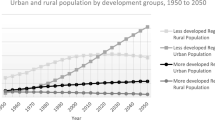Abstract
Municipal economy problems are of a complex nature. Existing requirements for sustainable development make us apply various criteria while solving these problems. These can, for example, include economic, financial, social and environmental criteria. To handle them effectively, multi-criteria analysis should be applied. Decisions about heat production and delivery systems belong to such multidisciplinary problems. They were usually resolved in the past using classical numerical methodology that took into account only the technical and economic merits of the various alternatives. By applying multi-criteria tools instead it is possible to obtain more realistic results and make more effective decisions. The Analytical Hierarchy Process (AHP) seems to be a good alternative to fill the existing gap between decision-making as it is actually practiced and the traditional methods when applied to selecting district heating (DH) systems. This paper presents such an application. Our application is to select the best heat energy source for a DH system for a medium sized city located in Poland. Our results led to an interesting conclusion with regard to the best heat energy source. Our results suggest that intensifying the effort to make widespread the use of more efficient, but financially more costly, energy sources is the best.
Similar content being viewed by others
References
Brans, J.P. & Vincke, Ph. (1985). A preference ranking organization method (The PROMETHEE method for FMCDM). Management Science, 31(6): 647–656
Charnes, A., Cooper, W. et al. (1978). Measuring the efficiency of decision making units. European Journal of Operational Research, 2: 429–444
Dalkey, N. & Helmer, O. (1963). An experimental application of the Delphi method to the use of experts. Journal of the Institute Management Science, 9: 458–467
Keeney, R. L. & Raiffa, H. (1976). Decisions with Multiple Objectives: Preferences and Value Tradeoffs. New York: Wiley
Kwiesielewicz, M. & van Uden, E. (2004). Inconsistent and contradictory judgements in pairwise comparison method in the AHP. Computers and Operations Research, 31(5): 713–719
Opricovic, S. & Tzeng, G.H. (2003). Fuzzy multicriteria model for post-earthquake land-use planning. Natural Hazards Review, 4(2): 59–64
Roy, B. (1968). Classement et choix en présence de points de vue multiple (la méthode Electre). Revue d’Informatique et le Recherche Opérationelle, 8: 57–75
Saaty, T. L. (2001). The Analytic Network Process: Decision Making with Dependence and Feedback. Pittsburgh: RWS Publications
Saaty, T.L. (2000). The Fundamentals of Decision Making and Priority Theory with the Analytic Hierarchy Process, AHP Series, Pittsburgh: RWS Publications
Saaty, T.L. (2003). Decision-making with the AHP: Why is the principal eigenvector necessary. European Journal of Operational Research, 145(1): 85–91
Saaty, T.L. & Ozdemir, M. (2003). Negative priorities in the analytic hierarchy process. Mathematical Computing and Modelling, 37(9–10): 1063–1075
Seiford, L.M. (1996). Data envelopment analysis: The evolution of the state-of-art (1978–1995). Journal of Productivity Analysis, 7(2,3): 99–137
Vaidya, O.S. & Kumar, S. (2006). Analytic hierarchy process: An overview of applications. European Journal of Operational Research, 169(1): 1–29
Zahedi, F. (1986). The analytic hierarchy process a survey of the method and its applications. Interfaces, 16: 96–108
Author information
Authors and Affiliations
Corresponding author
Additional information
This work was financially supported by the Rector of Opole University of Technology, Opole, Poland.
Mirosław Dytczak Born on 15th of December 1946 in Lodz, Poland. M.Sc in Civil Engineering (1971), Ph.D (1977) and D.Sc. (habilitation) in Mechanical Engineering (1988) (Decision Problems in District Heating Systems Design) from Warsaw University of Technology (WUT). Present position: professor at Opole University of Technology (OUT) and the WUT. Also consultant in district heating modernisation and development at “Infrasystem” (private consulting firm). Primary fields of interest are operational research, mathematical modeling and applications of numerical methods especially in: Energy and Environmental Resource Economics (District Heating and Cooling Systems), Environment Protection, Alternative Sources of Energy (eg. Central Solar Heating Plants with Seasonal Storage), Urban and Rural Infrastructure Systems. Member of several home and international bodies; Member of Polish Civil Engineers Society PZITS NOT (since 1973), Expert of PZITS-NOT in district Heating (No 1088Y, 1982), Expert of United Nations — Framework Convention on Climate Change (nominated by UN 12-th of March 1997), Member of International Council for Thermal Energy Storage (from 1985, Toronto, representative of Poland), Member of International Society on MCDM. Teaching experience: since 1978 assistant professor, associate professor (1987) and professor (1990). Promotour of over 150 master and 4 PhD theses. Over 200 published research articles, reports and realized projects. Professional experience: author of many conceptual studies, strategies of district heating modernization and development, master plans and feasibility studies for over 30 cities in Poland. Some international experiences obtained from Technical University of Denmark (solar energy and seasonal energy storage 1978–1994), Carl Bro Consulting Copenhagen (software Condors II 1985–1988), Hickling Consulting Ltd Ottawa Canada (DESA project 1985–1987), Magma GmbH Aachen Germany (software for simulation foundry processes Magmasoft 1988–1991).
Grzegorz Ginda Born on 4th of March 1966 in Opole, Poland. MSc in civil engineering (since 1991), PhD (1999) at Opole University of Technology (OUT), Poland. Present position: assistant professor at the OUT, Faculty of Management and Engineering Production. His main areas of interest comprise: operational research and mathematical modeling with regard to engineering and management; applications of software for engineering and management, especially FLOSS software; fire safety problems of buildings and structures; energy building auditing; building thermal analysis. A member of Polish Society of Civil Engineers PZITB (since 1995), building energy auditor (since 1999). Teaching experience includes: a tutorship (since 1999) of 8 MSc and 11 BSc theses in civil engineering; teaching courses pertaining to: engineering (structural and architectural design, building thermal analysis, engineering graphics, fittings design, roads design, applications of computer science, construction planning) and management (operational research, forecasting and simulations). About 50 published research papers. Professional experience: participation in civil engineering structural and urban design projects, building energy auditing projects.
Rights and permissions
About this article
Cite this article
Dytczak, M., Ginda, G. Benefits and costs in selecting fuel for municipality heating systems with the Analytic Hierarchy Process. J. Syst. Sci. Syst. Eng. 15, 165–177 (2006). https://doi.org/10.1007/s11518-006-5005-7
Issue Date:
DOI: https://doi.org/10.1007/s11518-006-5005-7




